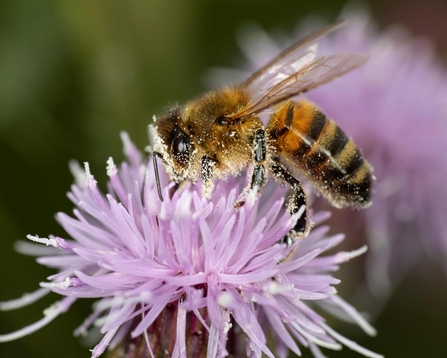As we move further away from summer and the days of autumn draw longer and colder you may well have noticed the disappearance of some of your favourite garden visitors. Winter provides a harsh challenge for survival for most species, but how do some of our smallest residents manage to make it through the colder months?
Despite their fluffy jackets, bees find it especially hard to survive over winter and the 270 different species of bees that reside in the UK have developed a range of fascinating tactics to make it through to the warmer months.
The majority of bees in Britain are solitary bees and will start their preparation to survive the winter several months before the temperature drops. During autumn female bees gather pollen and nectar for the nest, where they then lay their eggs. They then seal the nest to safely store their eggs with the collected pollen and nectar, which the young bees will consume as they develop into adults. For different species, however, this process will take place at different times.


